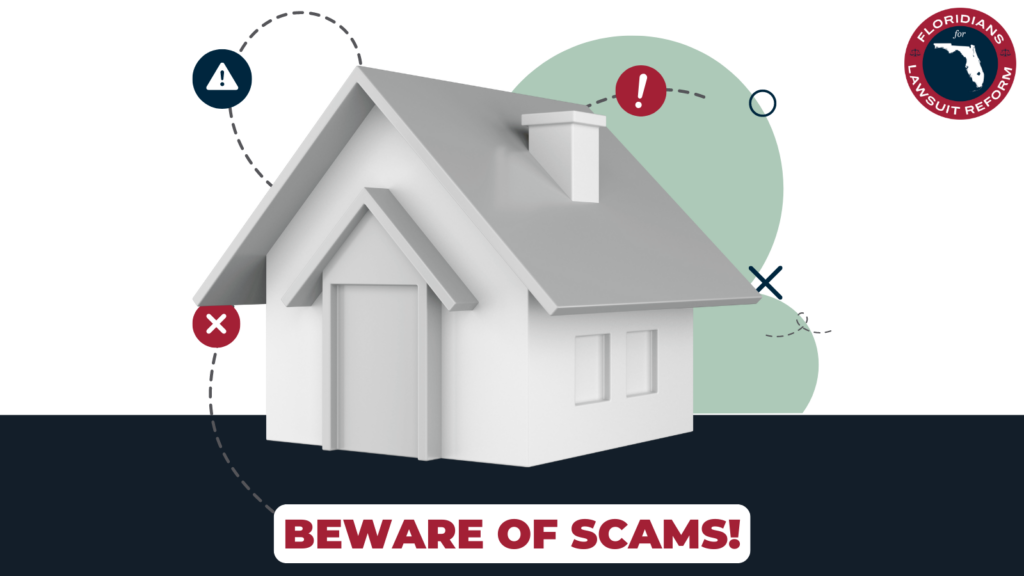
UPDATED ON: OCTOBER 3, 2022 / 2:07 PM / MONEYWATCH
Hurricane Ian clobbered Florida, Georgia and the Carolinas, causing billions of dollars in damages to businesses and homeowners. But the storm wasn’t the only threat to those in its path.
Natural disasters like Ian commonly attract scammers, sometimes dubbed “storm chasers,” who pose as reputable contractors and trawl damaged communities in order to bilk unsuspecting homeowners out of their insurance payouts or other benefits, such as private donations or federal recovery funds..
But there are ways to spot fraudsters, experts told CBS MoneyWatch. It starts with simply being aware of the types of scams that often trail the destruction left by hurricanes, earthquakes, floods and other disasters. Here are three of the most common scams, along with tips from insurance professionals on how to avoid being taken for a ride.
Phony contractors
Phony contractors often appear a day or two after a major storm hit an area and set up shop in a strip mall or a recreational vehicle, said David Glawe, CEO of the National Insurance Crime Bureau. These fraudsters will contact homeowners and tell them that workers can begin repairs on their house immediately so only as they sign a contract with the company. The contract, however, re-assigns any forthcoming insurance payout to the fake company instead of its intended recipient, the homeowner.
People impacted by a major storm are trying to get back on their feet as quickly as possible, and these faux contractors are like “vultures” who prey on people’s understandable desire to resume life as normal, Glawe said.
“Vulnerable people will think they’re getting a quick solution, but they won’t be,” he told CBS MoneyWatch.
If someone contacts you claiming to be a contractor, take down the person’s name and phone number, Glawe advised. Research the company online and make sure it’s licensed to work in your state or city. If the company has bad reviews from the Better Business Bureau or doesn’t have a registered license, it’s likely a scam.
“If your Spidey sense is going off, reject them,” Glawe said.
Roof wreckers
Another common scam involves someone visiting your home after a severe storm and offering to check for damage on your roof.
Once on your roof, the person pretends to spot or actually deliberately damages your property, sometimes using golf balls under their shoes to simulate puncture marks from hail. They then offer to help the homeowner submit a damage claim to the insurance provider. The fake roofers get paid by convincing the homeowner to file a claim with their insurance company and then sending the check to them.
One red flag is if a person is going door to door offering roof work, using pushy sales tactics and demanding payment up front, said Logan McFaddin, a regional manager covering Florida for the American Property Casualty Insurance Association.
“Never pay up front in full,” she said. “That’s not how legitimate contractors work. Payments are done in installments as the work is done.”
McFaddin said the best strategy is to ask the person at your door for a list of references. A reputable company should be able to provide that information, she said. Experts also recommend getting price quotes from two or three licensed roofers before making any decisions, she said.
Debris clearing no-shows
For this scam, bad actors typically target the elderly or disabled. Someone pretending to represent a removal company will go door to door asking homeowners to sign a contract and make a down payment to have someone clear fallen tree branches, rubble and trash from their lawn. The person walks away with a signed contract and down payment money, but no one returns to do the work.
The best way not to get ripped off is never to give anyone a down payment for future services and only offer payment after the work is done, Glawe said.
“Once you pay that money to them, it’s out the door and you may not get it back,” he said.
